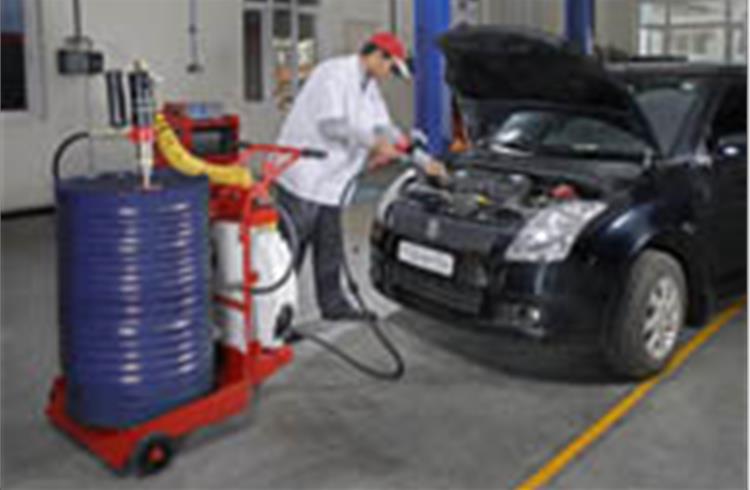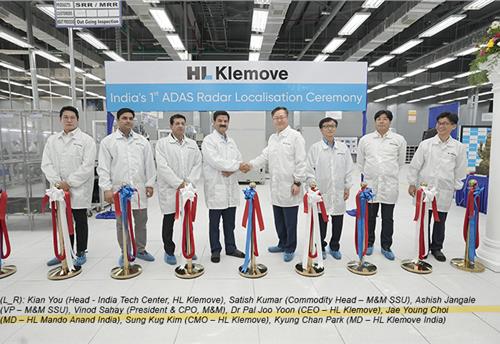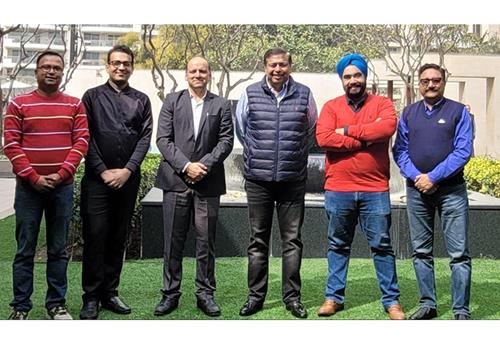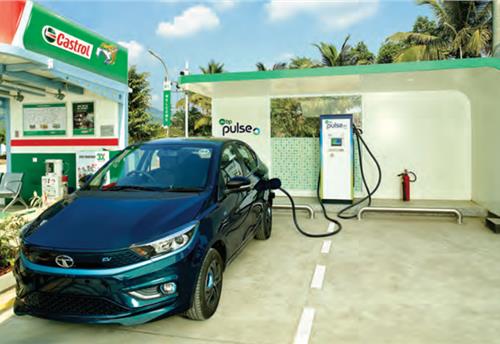ATS Elgi banks on emerging trends
The changing trends in the vehicle servicing business and increasing passenger car sales are resulting in opportunities and challenges for garage equipment manufacturer
For the Coimbatore-headquartered ATS Elgi Ltd, this change is good news. The company, which has service networks spread across 62 locations in the country, aims to leverage the emerging opportunities in a big way. It has acknowledged the fact that organised garages and OEM-controlled service centres look for high productivity and reliable equipment with effective aftersales support. However, despite using imported equipment which is highly productive, the absence of service support has hampered progress. It is this area which ATS Elgi aims to exploit.
According to Harjeet Singh Wahan, managing director, the company has an edge in terms of aftersales service over imported equipment. “There was a time where there was shortage of supply and imports came in handy. But organised players, who have a manufacturing presence in India, have an edge now,” he says. However, good aftersales support remains a vexing issue. Quoting a study conducted on Chinese paint booths with an average age of three years, he says that customers, though happy with the product’s performance, have seen many booths fall apart as a result of poor service support. Similar issues were faced by customers in Sri Lanka and the Middle East. “Now the trend is changing, which is why our growth has been phenomenal.”
Recognising that an unflinching customer focus is a key factor in its business, ATS Elgi has set up a Customer Care Centre (CCC) system in which all calls made to the toll-free number are logged. “People are not used to toll-free numbers yet but the calls are growing at 40 percent every year. Customers have also increasingly begun to realise the importance of an Annual Maintenance Contract (AMC). Last year our AMC business grew by about 40 percent. This has come as a big change and benefitted us,” he says.
Going forward, Wahan believes the trend will be towards a more professional way of doing business due to stratospheric real estate prices and an increasing car parc. India will replicate Korea and Taiwan where most cities have small garages for carrying out quick services like oil / filter change and tyre work while larger workshops handle repairs of engine, gearbox and also accidents. While the smaller quick-repair workshops are within the city, bigger operators are located on the city outskirts. From the garage equipment manufacturers’ point of view, there is growing demand for high- productivity equipment.
This is because the quick repair service centres operating within city limits have limited space but are expected to service a larger number of vehicles in the shortest possible time. This calls for lean machines with higher productivity. The challenge for the garage equipment manufacturer is to cater to this increasing demand. Besides, the upkeep of the equipment should be at least 98 percent to meet demand, and local service support and speedier service for the machines are essential.
Anand Cyril, head of sales of ATS Elgi, says the company’s 62 dealers stock all spare parts to enable speedier service. This has helped the company reduce the mean time between breakdown and repair, which averages 34 hours for all types of service. The company also has an online breakdown service record accessible to vehicle manufacturers. For instance, Maruti Suzuki can see the mean time between breakdown and repair at its authorised service centres that use equipment manufactured by ATS Elgi. This initiative is quite a challenge as the company is answerable for any loss of productivity at the service centres in the event of equipment failure. This also helps it improve the products continually, in turn reducing equipment failures and downtime. Wahan says, “For each OEM we have designated a person for sales and service. This helps build our relationship with OEMs better. Besides, it also helps the OEMs to monitor the performance of their service centres.”
This strategy also pays dividends to the OEM, helping improve customer satisfaction and retention. At present, in most price bands, vehicles from various OEMs have almost similar features and quality. The only differentiator is the aftersales service and OEMs are continually working to reduce the cost of ownership to have an edge over their competitors. This in turn calls for enhancing workshop productivity, which needs preventive maintenance. Also, adds Wahan, the consumer trend in favour of preventive maintenance is leading to an increase in ATS Elgi's AMC business.
Customer is key ATS Elgi’s CCC system has an in-built ‘automatic escalation system’, which forwards the unattended complaints to a higher level in the company’s pecking order. For instance, the calls that are not attended to by service engineers on the same day are automatically forwarded to the regional service heads. Subsequently, if the service is still not completed, the data is forwarded to the service head the next day and finally to the CEO. This helps the company’s management to speed up resolving customer complaints besides taking corrective action.
The spare parts department follows a two-bin system where the items are replenished when the first bin is empty, ensuring an uninterrupted flow of spare parts. It stocks around 1,800 parts for garage equipment and about 2,000 for pneumatic tools that the company sells, most of which are imported from Japan. For breakdown indent, which happens occasionally, it ensures the spare parts reach the destination within 24 hours. The mean time between breakdown and repair is 34 hours at present, down from 47 hours a couple of years ago. The aim is to reduce it to 24 hours this year and it is here that AMCs will play a vital role. Currently, a little over 10 percent of ATS Elgi’s customers have registered for AMCs, reveals Wahan.
In order to embrace a systematic approach for all the operations of the company, it banks on training. The dedicated training centre at its headquarters imparts periodical training for mechanics and supervisors of garages and staff of OEM service centres. Besides, it also trains its own staff periodically to update their knowledge and skills. “Last year we clocked in about 7,000 man days for training,” he says.
Training the workforce The company accords much importance to manpower training as its installation base is spread all over India. It has more than 15,000 installations for only lifts and “with the base being large we need to constantly train people to offer seamless service support,” says Wahan. In addition to Coimbatore, ATS Elgi has training centres in Mumbai and Delhi to provide hands-on training to its customers and technicians. It has provided technical support to authorised technicians of several OEMs including Maruti, Tata, Hyundai, Ford, Honda and Toyota. Other than alerting the service team, calls from the CCC system also go to the ‘Performance Engineering Department’ (PED), which is part of the Quality Assurance (QA). PED has four engineers with each one designated to a specific vertical such as lifts, lubes and body shop. The mandate given to PED is to find out the root cause of the breakdown and arrive at a solution so that the fault is not repeated. “We have set a target of notching a 50 percent improvement every year. We were running at about 103,000 PPM about three years ago; that is now contained to 22,000 PPM,” he says.
To enhance its service, the company recently conducted a customer survey and found that their concern is about getting faster services. Based on these findings, the company is expediting its service offerings. Meanwhile, its PED approach ensures that the number of defects is reducing. “We have to work on two parameters – contain the defects and also address breakdowns faster,” he says. The company classifies customer complaints into two classes – at the time of installation, which is mainly attributed to the shopfloor workforce at ATS Elgi and post-installation complaints, which will be taken up by PED. The performance of PED is measured by the reduction of warranty cost while QA measures the cost of quality. It has a system to charge a penalty to the supplier who sent defective parts, Wahan says.
PED also plays a vital role in introducing new technologies and concepts that are cost-competitive. Uninterrupted supply of power remains an issue in most parts of the country and high-tech equipment can malfunction with power without the stipulated frequency and voltage. As ATS Elgi imports certain lifts from its collaborators, it has had to introduce an interface to tackle such problems. However, the problem has turned out to be a profitable business opportunity as the collaborator insists the company continue to supply the interface, which will help it export to underdeveloped nations where quality power remains an issue.
Innovation and new products Revealing future product plans, Wahan says ATS Elgi plans to launch an automatic car wash system during the third quarter of this fiscal. The machine, he claims, has advanced technology and performs cleaning operations faster and consumes less water. As a pilot project, it has recently installed a machine in Madurai. Currently ATS Elgi deals with lube, wash, lift, body shop/painting, wheels, tyre inflators, pollution (gas analysers) and special equipment like simulators for Maruti Driving Schools. The company makes the simulators on a contract manufacturing basis for a French firm that supplies Maruti. Thus far, about 120 simulators have been supplied to the vehicle manufacturer. “Every year we introduce at least four new products. Last year we launched nitrogen inflators for trucks, a first for India. Now companies like Volvo use our nitrogen inflators. Soon we will be launching an exhaust extraction system and centralised lube distribution system for garages,” he says.
Another trend is that most modern garages are allowing their customers to see their vehicles being serviced on clean shopfloors, to create a brand experience. Moreover, to optimise costs, workshops are preferring standardisation of gadgets and tools and also centralising the dispensation of different lubricants. A centralised lube distribution system will help the workshops eliminate the huge lube dispenser near the workshop bay and also make the bay lean and help free movement of technicians. ATS Elgi is also launching a range of lifting equipment including low-height lifts which can lift cars up to 600mm, unlike the normal lifts used for under-chassis repairs, to facilitate wheel servicing.
Equipment like this is in great demand in wheel service centres due to higher productivity and their competitive price. “Wheel shops in India always work underground with lower levels of productivity. With the low-height lifts, we have seen about 200 percent productivity increase in wheel garages,” says Wahan. In terms of manufacturing capacity, Wahan says the company has been enhancing it by bridging the technology gap.
For instance, the welding operation has seen a move from manual to MIG (metal inert gas) to robot welding now. During the past three years, the company has enhanced its productivity by 60 percent without increasing the number of workers. ATS Elgi has introduced some globally acclaimed manufacturing concepts including single-piece flow predominantly practiced by the automobile and auto component sector. Called EMS (Elgi Manufacturing System), the objective is to reduce worker fatigue while improving productivity. Besides, it will also introduce mistake-proofing techniques to eliminate rework and contain rejections.
“In the current year, we will even test the equipment on-line for load-carrying capacity during assembly process itself,” thereby eliminating the setting time for testing separately. This will reduce the overall production cycle time. According to Wahan, there is a dedicated team – ‘manufacturing engineering department’ to address the technology gaps and device cost competitive methodologies to improve quality and enhance productivity. EMS has been conceived by this department, he says.
All in all, ATS Elgi seems firmly placed to capitalise on the burgeoning business opportunities.
RELATED ARTICLES
Branded content: HL Klemove inaugurates first Local ADAS Radar Manufacturing Unit in India, marks a significant achievement in “Make in India” initiative
The inauguration ceremony was held in the presence of Vinod Sahay, President and CPO of Mahindra & Mahindra Ltd. and Dr....
BluWheelz to 'Green Up' logistics sector
With their EVs-as-a-service solution, the startup is playing it smart with costs and looking to electrify the entire seg...
BRANDED CONTENT: Spearheading the EV revolution in India
Jio-bp is a joint venture between Reliance Industries and BP PLC where both entities have married international expertis...





 By Autocar Pro News Desk
By Autocar Pro News Desk
 01 Jun 2010
01 Jun 2010
 5305 Views
5305 Views









